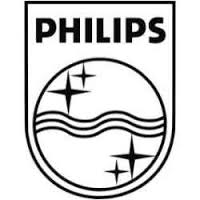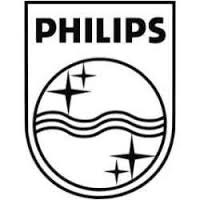
A transformation at the former Dutch conglomerate, Philips, that its chief executive says will gather pace was reflected in the fact that these days the average researcher at Philips is more likely to be a software developer than an product engineer.
Noting that around 60 percent of the healthcare technology company's R&D staff are now focused on software, Frans van Houten told the media, "it's a huge shift."
"It could rise further. It will not go to 100 percent, because we will still make products, but you could easily see that the value-add comes more out of software than hardware," van Houten said.
Having gained freedom to use capital and increased capacity for acquisitions such as last year's $1.2 billion purchase of blood vessel imaging firm Volcano after the company spinned off lighting, Philips has repositioned itself as a health business company.
"M&A will play a more active role," van Houten said during a visit to London. van Houten highlighted that the areas for potential deals had been identified by the company and they were informatics, diagnostics, patient monitoring and homecare.
In the latest technical innovation in the health care industry, as smart connected devices in hospitals and at home feed data to doctors, insurers and drugmakers, Philips is betting on a new era of connected healthcare.
With traditional medtech groups like Medtronic striving to integrate disease care and newcomers, such as Google parent Alphabet, also investing heavily, Philips is not alone in targeting this convergence of health and technology.
But Philips' existing standing with consumers can give it an edge, van Houten believes.
"Having a consumer brand helps us a lot. We will see more ambulatory care and there will be a lot of new ways to deliver healthcare ... and that means consumerism is going to play a bigger role."
Even the humble toothbrush may be a start. And with brushes that are designed to encourage correct brushing in children and adults, Philips already sells such connected tooth brushes. A sensor to measure disease biomarkers in saliva could be included its toothbrushes in the future.
On the other hand, a single workstation combining genomics, pathology and radiology that can give medics a complete picture of tumors, are examples of integrated solutions for cancer that the group is developing and such devices would be at the other end of the health spectrum compared to the humble tooth brush.
Philips' full reinvention still has a little way to run.
While van Houten said he still hoped to clinch a deal before the end of the year, a sale of lighting components business Lumileds to Chinese buyers was blocked earlier this year by the United States on security grounds.
It also retains 71 percent of Philips Lighting, which van Houten said could take a few years to unwind.
(Source:www.reuter.com)
Noting that around 60 percent of the healthcare technology company's R&D staff are now focused on software, Frans van Houten told the media, "it's a huge shift."
"It could rise further. It will not go to 100 percent, because we will still make products, but you could easily see that the value-add comes more out of software than hardware," van Houten said.
Having gained freedom to use capital and increased capacity for acquisitions such as last year's $1.2 billion purchase of blood vessel imaging firm Volcano after the company spinned off lighting, Philips has repositioned itself as a health business company.
"M&A will play a more active role," van Houten said during a visit to London. van Houten highlighted that the areas for potential deals had been identified by the company and they were informatics, diagnostics, patient monitoring and homecare.
In the latest technical innovation in the health care industry, as smart connected devices in hospitals and at home feed data to doctors, insurers and drugmakers, Philips is betting on a new era of connected healthcare.
With traditional medtech groups like Medtronic striving to integrate disease care and newcomers, such as Google parent Alphabet, also investing heavily, Philips is not alone in targeting this convergence of health and technology.
But Philips' existing standing with consumers can give it an edge, van Houten believes.
"Having a consumer brand helps us a lot. We will see more ambulatory care and there will be a lot of new ways to deliver healthcare ... and that means consumerism is going to play a bigger role."
Even the humble toothbrush may be a start. And with brushes that are designed to encourage correct brushing in children and adults, Philips already sells such connected tooth brushes. A sensor to measure disease biomarkers in saliva could be included its toothbrushes in the future.
On the other hand, a single workstation combining genomics, pathology and radiology that can give medics a complete picture of tumors, are examples of integrated solutions for cancer that the group is developing and such devices would be at the other end of the health spectrum compared to the humble tooth brush.
Philips' full reinvention still has a little way to run.
While van Houten said he still hoped to clinch a deal before the end of the year, a sale of lighting components business Lumileds to Chinese buyers was blocked earlier this year by the United States on security grounds.
It also retains 71 percent of Philips Lighting, which van Houten said could take a few years to unwind.
(Source:www.reuter.com)














